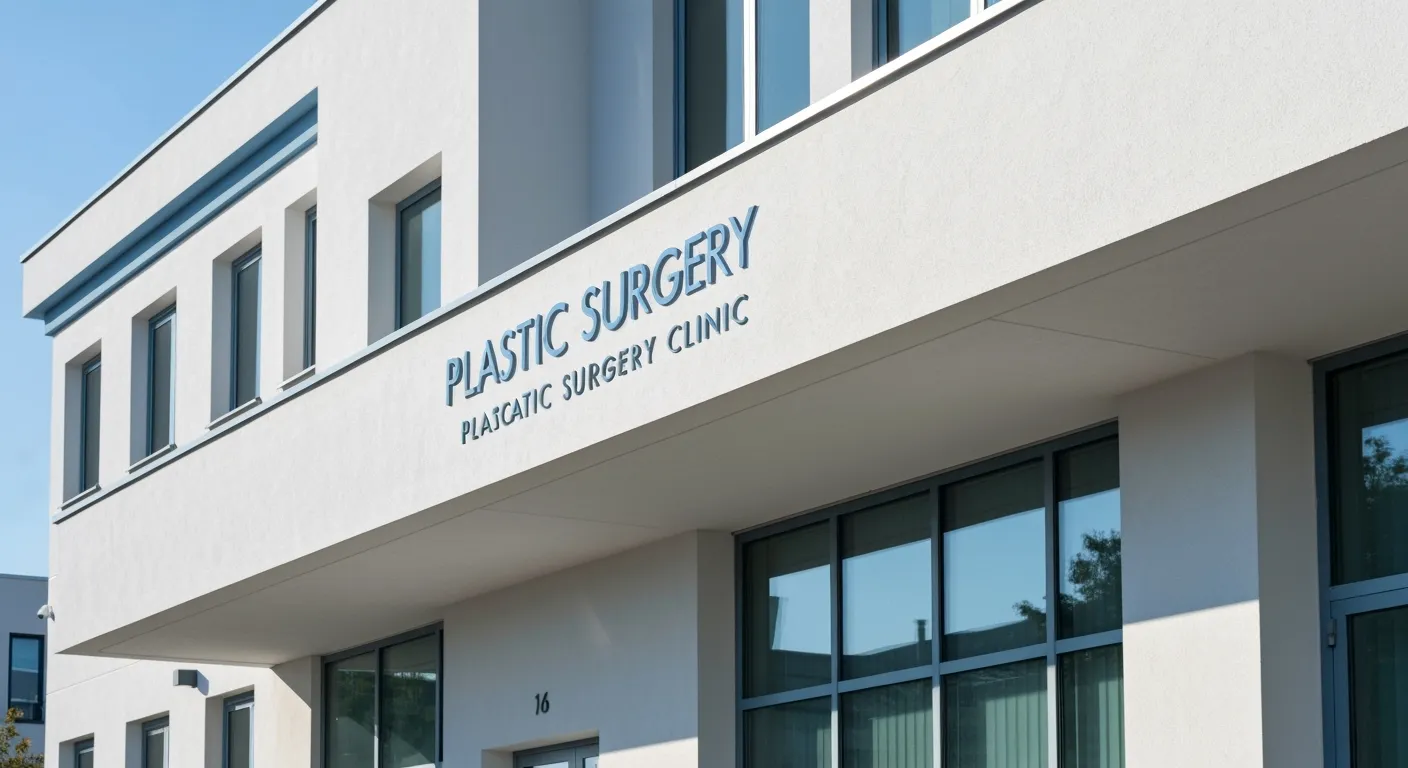
February 15, 2026
What Is Sculptra Treatment A Guide to Rebuilding Your Natural Collagen
What is Sculptra treatment? Explore how this unique collagen stimulator works to gradually restore facial volume for natural, long-lasting rejuvenation.
Oct 2, 2025

Board certification in plastic surgery is more than a title—it's a benchmark of rigorous education, proven expertise, and a commitment to patient safety and quality. This article explores why choosing a board-certified plastic surgeon offers unmatched advantages in both aesthetic and reconstructive procedures, ensuring better outcomes and peace of mind.

Certified plastic surgeons meet rigorous educational and professional standards that ensure they are well-equipped to perform both reconstructive and aesthetic procedures safely and effectively. They typically graduate from accredited medical schools, completing extensive coursework and training.
Following medical school, they undertake a specialized residenc y in plastic surgery, which lasts between 5 and 6 years. During this period, they gain hands-on experience in a variety of surgical techniques, patient care, and medical ethics. Many also pursue additional fellowship training in subspecialties such as microsurgery, craniofacial surgery, or hand surgery to refine their skills.
Certification platforms like the American Board of Plastic Surgery (ABPS) impose strict requirements that include passing comprehensive written and oral exams. These exams assess their medical knowledge, safety protocols, ethical judgment, and approach to patient care.
Maintaining certification is an ongoing commitment. Surgeons must participate in continuous education to learn the latest techniques and advancements. They must also re-certify every ten years, demonstrating their ongoing expertise and adherence to evolving safety standards.
All certified surgeons are required to operate in facilities that meet high standards of safety, including accreditation and the use of latest technologies. Their commitment to ethical standards, continuous learning, and patient safety positions them as trustworthy professionals in the field of cosmetic and reconstructive surgery.

Board certification plays a crucial role in elevating safety standards and improving results within plastic surgery. It ensures that surgeons have completed extensive training, including 16 years of education post-high school, specialized residencies, and often additional fellowship programs. Certified surgeons have passed rigorous written and oral exams that evaluate their knowledge, skills, and ethical standards.
These surgeons are trained to manage complications effectively and prioritize patient safety by performing procedures in accredited facilities with advanced techniques. Ongoing education is also a requirement, keeping them updated on the latest innovations and safety protocols. This continuous learning reduces risks such as infections, unsatisfactory scars, or anesthesia complications.
Patients opting for board-certified surgeons can expect higher-quality outcomes, fewer adverse events, and peace of mind that their provider adheres to strict professional standards. Certification acts as a mark of competence and ethics, ensuring that the surgeon has the proper expertise to handle both aesthetic and reconstructive challenges effectively.
| Aspect | Certification Standard | Impact on Safety | Additional Details |
|---|---|---|---|
| Training | 16+ years post-high school | Ensures extensive knowledge and skills | Includes residency and possibly fellowship |
| Examination | Rigorous written and oral exams | Validates competence & ethical standards | Covers technical and ethical knowledge |
| Facility | Accredited surgical centers | Enhances safety and infection control | Facilities meet strict standards |
| Continuing Education | Ever-evolving knowledge | Keeps surgeons updated on latest techniques | Responds to technological advancements |
Choosing a surgeon with board certification offers reassurance of a proven track record in safety, ethics, and surgical mastery, ultimately leading to better patient outcomes.

Opting for a plastic surgeon who is board-certified offers several significant advantages. These specialists must meet strict educational and training standards, including completing many years of medical education, a specialized residency in plastic surgery, and passing comprehensive exams administered by reputable organizations like the American Board of Plastic Surgery.
Board certification acts as a mark of quality and safety. It confirms that the surgeon adheres to high professional and ethical standards, has a thorough understanding of both reconstructive and aesthetic procedures, and stays current through continuous education.
Patients benefit from procedures performed in well-equipped, accredited facilities with strict safety protocols. Such surgeons are trained to anticipate and manage complications, making surgical outcomes safer and more reliable.
Verification of a surgeon's credentials is simple and accessible through official websites like the ABPS, providing reassurance of their qualifications. This transparency helps patients select practitioners with proven expertise, leading to personalized care, better results, and increased confidence in the surgical process.
Overall, choosing a board-certified plastic surgeon ensures high standards of safety, skill, and professionalism, greatly enhancing the likelihood of satisfactory and safe cosmetic or reconstructive surgery outcomes.

Board certification is a vital indicator of a plastic surgeon’s qualifications. It verifies that the surgeon has completed comprehensive education, including at least 16 years of post-high school training, along with specialized residency and examinations. Certified facial and body plastic surgeons have also committed to ongoing education, keeping their skills current with technological advances.
This certification process demands rigorous written and oral exams that evaluate not only technical skill but also ethical standards and patient care approach. Surgeons who are board-certified follow high safety standards, operate in accredited facilities, and are prepared to handle potential complications effectively.
By meeting these stringent criteria, certified surgeons provide patients with peace of mind, knowing their procedures are conducted by highly trained professionals who prioritize safety and achieve predictable, high-quality results.
Certification embodies a commitment to ethical practices such as maintaining patient confidentiality, offering honest consultations, and setting realistic expectations. Board-certified surgeons are bound by a code of ethics that promotes transparency, professionalism, and honesty in every aspect of care.
This includes clear communication about procedures, risks, and pricing, which fosters trust between the surgeon and patient. By performing procedures in accredited facilities and adhering to high standards, these surgeons reduce risks and improve outcomes.
Patients can verify a surgeon’s certification through official sources like the American Board of Plastic Surgery (ABPS) website. Choosing a certified surgeon ensures a level of professionalism that enhances the overall patient experience, leading to safer operations and more satisfying results.
Transparency in pricing, honest communication, and adherence to ethical guidelines help patients feel valued and respected. A board-certified surgeon not only provides personalized care through detailed consultations but also supports patients throughout their aesthetic journey with ongoing post-operative support.
This approach builds trust, encourages open dialogue, and reduces uncertainty, making the surgical experience more comfortable and positive. Ultimately, certification signifies a surgeon’s dedication to high standards, safety, and ethical excellence, resulting in a better surgical experience and optimal results.
| Aspect | Description | Impact |
|---|---|---|
| Ethical practices | Confidentiality, honest consultations, realistic expectations | Builds trust and ensures integrity in patient care |
| Certification verification | Via official platforms like ABPS website | Ensures surgeon’s credentials and standards compliance |
| Facility standards | Accredited hospitals, advanced techniques | Enhances safety and reduces complications |
| Ongoing education | Continuing training and techniques updates | Keeps surgeons current, improving results |
| Patient support | Personalized consultations and ongoing care | Improves satisfaction and overall experience |

Choosing a board-certified plastic surgeon or aesthetic specialist provides numerous benefits. These professionals have demonstrated extensive training and adhere to high standards of ethics and safety. Their proven expertise and technical skills ensure that procedures are performed with precision, reducing the risk of complications.
Certification by reputable organizations such as the American Board of Plastic Surgery guarantees that a surgeon has completed rigorous educational requirements, including medical school, specialized residency, and often fellowship training. They engage in ongoing education to stay current with the latest advancements and technologies.
This continuous learning helps specialists utilize innovative techniques and state-of-the-art tools, leading to safer procedures and superior results. Their extensive experience allows them to create personalized treatment plans tailored to the unique needs of each patient, fostering better outcomes.
Patients benefit from practitioners who can deliver natural-looking results while minimizing risks. In addition, a certified specialist's commitment to professionalism, honesty, and realistic expectations enhances patient trust and satisfaction. Overall, opting for a highly qualified specialist significantly increases the likelihood of achieving aesthetically pleasing, safe, and durable results.

Patient safety starts with the environment in which procedures are performed. Accredited surgical facilities meet strict safety standards, ensuring the availability of advanced equipment and sterile settings. Moreover, qualified anesthesia providers are essential for patient safety during surgery, managing anesthesia risks and ensuring proper care throughout the procedure.
Patients should ask about the surgeon’s experience specific to their desired procedure. Reviewing the surgeon’s portfolio of before-and-after photos offers insight into their aesthetic results and consistency. It’s advisable to choose a surgeon whose work aligns with your aesthetic goals and features similar patient cases.
Clear communication helps build trust and ensures realistic expectations. Patients should feel comfortable discussing their goals, concerns, and the details of the procedure. Transparency in costs, including all fees and potential additional expenses, prevents surprises and helps patients plan financially.
Membership in reputable organizations like the American Society for Aesthetic Plastic Surgery signifies adherence to high standards. These societies require ongoing education and ethical practice, which help surgeons stay updated on the latest techniques and safety protocols. Continuous learning contributes to better outcomes and enhanced patient care.
Choosing a board-certified plastic surgeon stands as the gold standard for anyone considering plastic surgery. This certification encompasses rigorous training, proven expertise, strict adherence to ethical standards, and a commitment to continuous education—all essential factors that significantly enhance patient safety and surgical outcomes. Beyond technical skill, board-certified surgeons offer personalized care, transparency, and professional integrity, ensuring patients can trust their journey toward aesthetic or reconstructive goals. By prioritizing certification and exploring additional qualities like accredited facilities and clear communication, patients empower themselves to achieve safe, natural, and satisfying results with peace of mind.

February 15, 2026
What is Sculptra treatment? Explore how this unique collagen stimulator works to gradually restore facial volume for natural, long-lasting rejuvenation.

February 14, 2026
Learn how to tighten facial skin naturally with proven skincare, exercises, and diet. Our guide offers actionable tips for achieving firmer, more youthful skin.

February 13, 2026
Considering Kybella for under chin fat? Learn how it works, what to expect, costs, and if you're a candidate in our complete guide to jawline contouring.